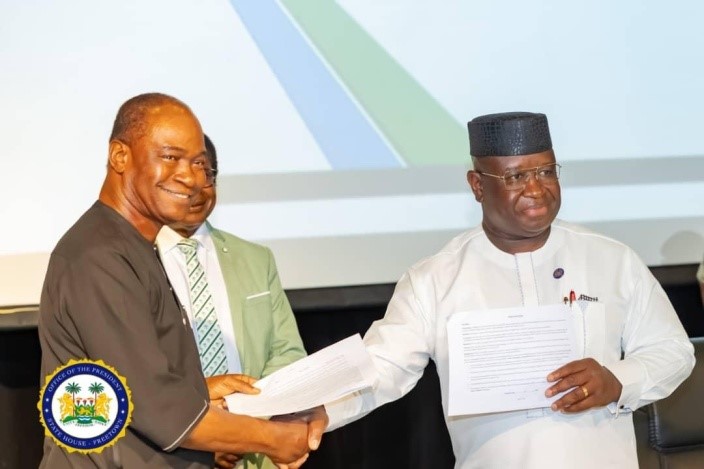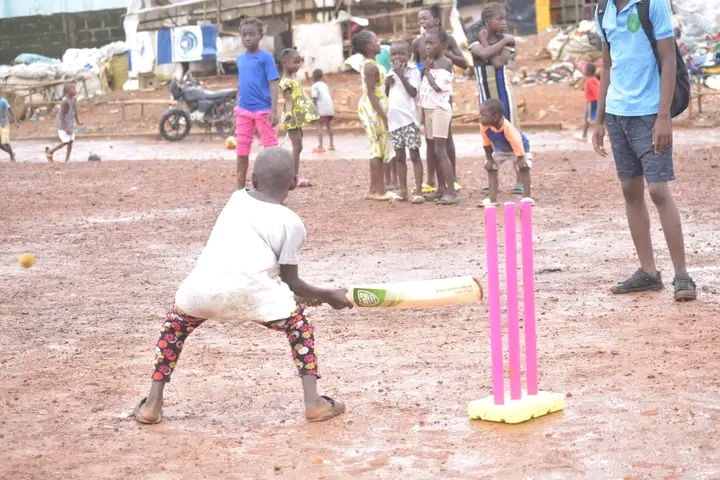By Jarrah Kawusu-Konte
President Julius Maada Bio has grudgingly agreed to participate in peace talks with the main opposition All Peoples Congress (APC) party. This follows the acrimonious outcome of the June 24 presidential elections in which he was controversially declared the winner by Mohamed Konneh, head of the Electoral Commission of Sierra Leone (ECSL).
The APC, led by its presidential candidate, Dr Samura Kamara, had rejected the results, calling Konneh’s declaration of the incumbent President Bio as the winner an electoral coup.
Several independent local and international observers had also raised ‘serious concerns over the tabulation process’, which they say lacked transparency. The result itself was deemed to be at variance with what the National Elections Watch (NEW)’s Tally showed.
According to the Executive Secretary of the Independent Peace Commission, Hawa Samai, President Julius Maada Bio had no objection to the APC inviting the AU, ECOWAS and Commonwealth to mediate the political stalemate. It is also reported that all three bodies have agreed to participate in resolving the current impasse.
International condemnation of the tabulation of results and the failure of the ECSL to publish the disaggregated results have now reached boiling point with the recent US visa ban against individuals ‘responsible for undermining democracy and the electoral process in Sierra Leone’. Aside the fact that additional names would be added to the visa restrictions list as and when new evidence against individuals responsible for undermining democracy and the electoral process in Sierra Leone emerges, it is believed the move by the US is the beginning of a raft of measures the greatest country on earth plans to take against those responsible for subverting the will of the people in the June polls.
It could be recalled that the US Government was among those who had expressed concern over irregularities in the results that were announced by the ECSL. The ECSL result stands discredited owing to the serious differences between its results versus the one announced by NEW’s parallel vote tabulation. The inconsistencies that were analysed by domestic and international observers showed that it was improbable for any of the two leading candidates to secure an outright victory without a run off . “All of these things raise questions in our mind, not just the United States, but really all over the world about the integrity of the official results,” the outgone US Ambassador David Reimer said in a recent interview with Radio Democracy 98.1.
Despite calls by the US and other development partners for an investigation to be conducted by an independent outside body to look at the results of the elections announced by ECSL, the government remains defiant.
President Bio himself is reported to have said that no international body has any rights to interfere with the national politics of Sierra Leone. “We have never done that to the European Union, we have not done that to the United States when they had problems to the point of attacking the Capitol, that’s their democracy, their democracy is with guns. This is our own country. Let’s take care of ourselves, but it is also not fair, and it is unfortunate that some of you out there as civil society keep quiet on certain misrepresentations. We have to take stands for them to respect us, I know them,” he said.
As a result of this recalcitrant attitude by the Bio administration, the United States Secretary of State, Anthony Blinken last week slammed a new visa restriction policy for those who, he maintained, undermined the democratic process in the June 2023 Sierra Leone elections.
He noted that under the policy, the United States will pursue visa restrictions for those believed to be responsible for or complicit in undermining democracy in Sierra Leone including through the manipulation or rigging of the electoral process and the intimidation of voters and elections observers.
To compound an already dire situation, Sarah Van Horne, Public Affairs Officer at the US Embassy in Freetown pointed out in an interview with Radio Democracy 98.1 that, “We are examining all our government to government programmes. These conversations are ongoing, and we have nothing new to announce currently,”
Now, Sierra Leone stands to miss out on the MCC compact development process which has been put on hold as a result of the Bio administration’s recalcitrance to allow an independent audit as well as calls for the release of the elections results by polling stations.
But it appears as if some senior members of the government have started smelling the coffee. Few days ago, Managing Editor of The Global Times, Sorie Fofana urged President Bio to engage in quiet diplomacy to handle such a complex issue, because, as he rightly noted, Sierra Leone cannot afford to pick an open fight with the US Government, especially when considering the great influence the US has over decisions taken by the Bretton Wood Institutions like IMF and the World Bank.
It is for this reason, some pundits have opined, that the president has decided to sit together with the main opposition APC to settle whatever differences they might have regarding the June 24 presidential, parliamentary and local council elections.












